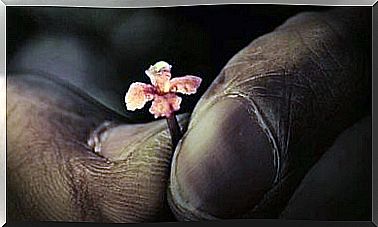How To Defend Against Covert Aggression

Is it possible to be passive and aggressive at the same time? Although it seems contradictory, the passive-aggressive person does not show his hostility openly, but indirectly, using strategies that demoralize and irritate the other, but ultimately control him.
This peculiar mixture of non-confrontational hostility makes passive-aggressive behavior confusing and therefore difficult to combat. There are several reasons why passive-aggressive people choose to use indirect tactics, but they are not less harmful or exhausting.
How is the attack carried out without confrontation
Passive-aggressive behavior is an indirect way of expressing negative emotions, through the following strategies:
• Antagonism: This attitude consists of being permanently against the wishes and wishes of others.
• Distant, absent and antisocial attitude: Although the person is physically present, mentally and emotionally they are elsewhere, or protesting in some way. She demonstrates this attitude with her non-verbal language, establishing little eye contact, having an apathetic attitude or responding in a monosyllabic manner, among other similar behaviors.
• Attitude of victim: The passive-aggressive complains constantly and plays the role of the sacrificed so that others feel compassion for him and please him.
• Procrastination: This consists in leaving tasks or appointments until the last minute, causing annoyance and stress in yourself and others.
• Voluntary mistakes: The passive-aggressive does things carelessly and deliberately makes mistakes as a way of expressing their displeasure.
Why do they act like that?
There are different reasons that can cause passive-aggressive behavior, which are illustrated with typical situations:
• The dominant part of the couple : when one of the members of the couple imposes its criteria on the other, the latter is likely, if not as assertive, to show their discontent through lack of interest or being uncooperative in shared tasks.
• Authoritarian parents: if the style of the parents is “military”, the children can even obey them, but complaining and half-fulfilling orders.
• The Tyrannical Boss: While employees may not dare face an exploitative and inconsiderate boss as much as possible, they will exact revenge through delays and mistakes at work.
• The political family: typical situations, such as the mother-in-law who doesn’t like her daughter-in-law or vice versa, produce tensions that are often expressed indirectly, through double meanings, disdainful attitudes and rudeness, in order to avoid conflict.
What to do in the face of covert aggression?
Faced with this situation, it is important to know that the exposed behavior is a clear form of manipulation and control, and that it is up to us not to fall into this game. Here are some strategies to avoid it:
• Don’t be impressed: a frown, indifference and lack of cooperation are signs that should not go unnoticed. On the contrary, they must be faced assertively as soon as possible.
• Set an example: if we express our negative emotions in a timely and assertive way, we help to generate open communication that avoids toxic behavior, such as passive-aggressive.
• Avoid dominant and oppressive behavior : one of the main triggers of passive-aggressive behavior is authoritarianism. Therefore, it is preferable to allow for dialogue and open communication, even when dealing with negative emotions.
While we may not always be able to express our emotions directly and we all engage in passive-aggressive behavior at times, the problem arises when this becomes a pattern of communication. Therefore, it is important to be assertive and express what we feel, as well as letting others feel free to express their emotions.









